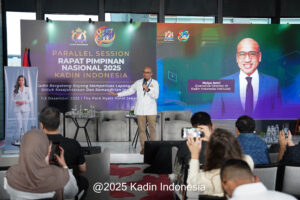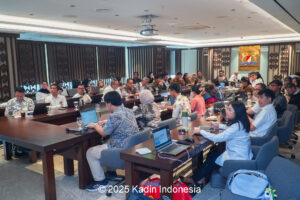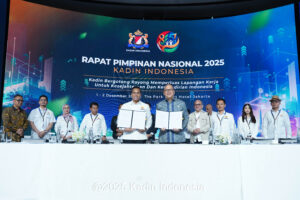Jakarta, 13th August 2025 –The United Kingdom and Indonesia are entering a new era of cooperation, as both nations prepare to formalize a Strategic Partnership later this year. Building on President Prabowo Subianto’s meeting with UK Prime Minister Sir Keir Starmer in London at the end of 2024, the upcoming agreement will deepen collaboration across four key pillars: Economic Growth, Climate & Energy, Defence & Security, and People & Society.
In anticipation of the signing, the UK–Indonesia Industry Roundtable—co-hosted by the Indonesian Chamber of Commerce and Industry (Kadin Indonesia) and BritCham Indonesia, in collaboration with the British Embassy Jakarta—brought together policymakers, industry leaders, and business representatives to exchange insights and identify opportunities for concrete deliverables.
The event featured remarks from Michael Sampoerna, Chair of Kadin Bilateral Committee for the UK & Ireland; Pahala Nugraha Mansury, Vice Chairman for Trade and International Agreements of Kadin Indonesia; Donny Donosepoetro OBE, Chair of BritCham Indonesia’s Advisory Board; and Bernardino M. Vega, Vice Chairman for International Relations of Kadin Indonesia.
A keynote presentation was delivered by Ms. Rhiannon Harries, His Majesty’s Deputy Trade Commissioner for Asia Pacific (Southeast Asia), outlining the UK’s newly launched Industrial and Trade Strategy and the key priorities under the upcoming partnership.
Key Discussion Outcomes
1. Economic Growth & Prosperity
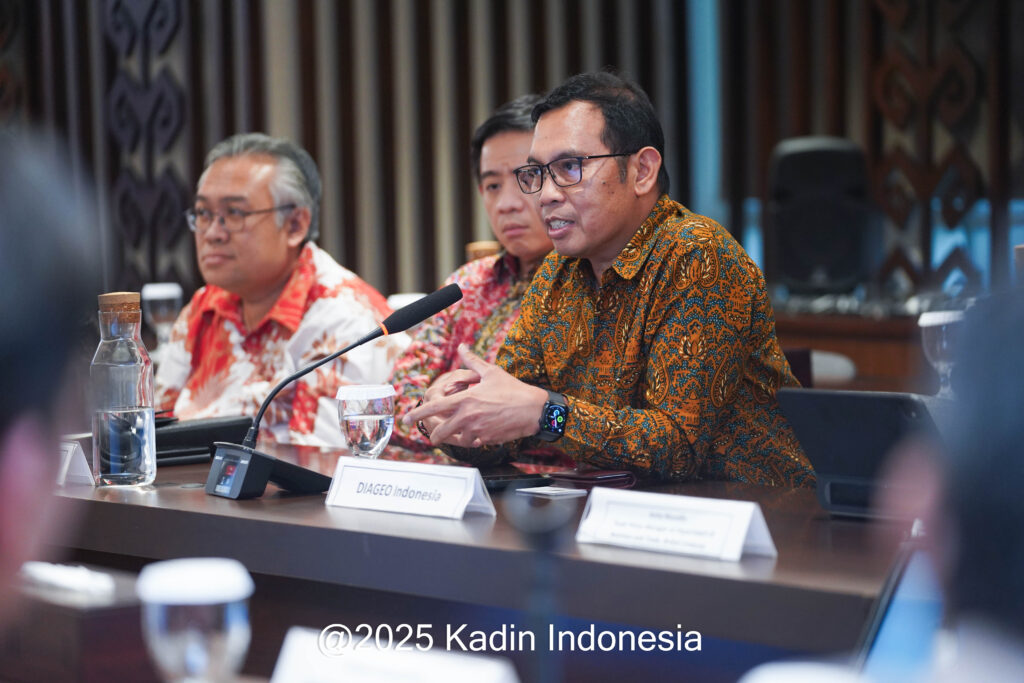
Pak Speakers Dendy Borman (DIAGEO) and Charles Kho (HSBC) highlighted opportunities to unlock stronger growth through investment liberalisation, tax reduction, and digital trade reforms. Proposals included the legalisation of electronic bills of lading, creation of a trade finance registry, and simplification of licensing and tariff structures in the food and beverage sector. In energy and technology, participants emphasised the need for greater fiscal transparency and simpler import approvals to attract foreign investment and curb illicit trade.
2. Climate & Energy Transition
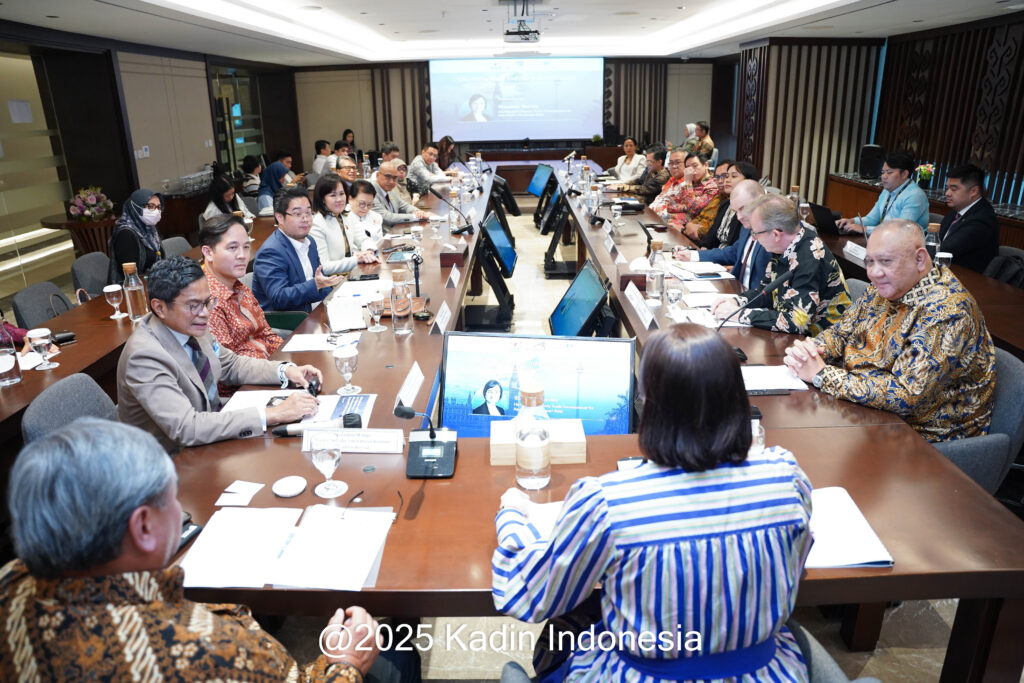
Andy Citawarman (Mott MacDonald) and Jeffry Johary (OCS) stressed the importance of regulatory flexibility to accelerate clean energy adoption. This includes adaptive procurement processes, balanced local content requirements, and streamlined carbon project licensing. They also underscored the need to link national and international carbon registries, align with global standards, and mobilise public–private financing to expand carbon markets and support Indonesia’s energy transition.
3. People & Society
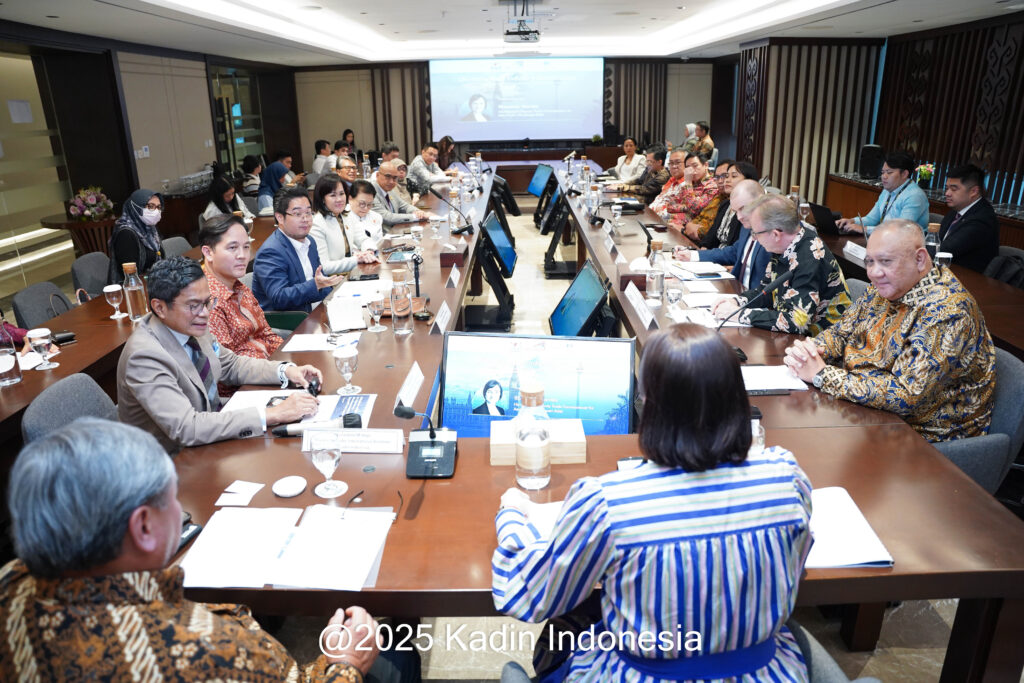
Novita Menayang (Swire Investments Indonesia) led discussions on human capital development, focusing on reforms in healthcare licensure, faster approval pathways, and improved reimbursement systems. Recommendations included expanding vocational and specialist training, supporting digital health innovation, and aligning scholarships and curricula with industry needs. Participants also noted the importance of broadening adult immunisation programmes, developing frameworks for rare diseases, and adopting multi-metric education evaluation systems.
4. Defence & Security
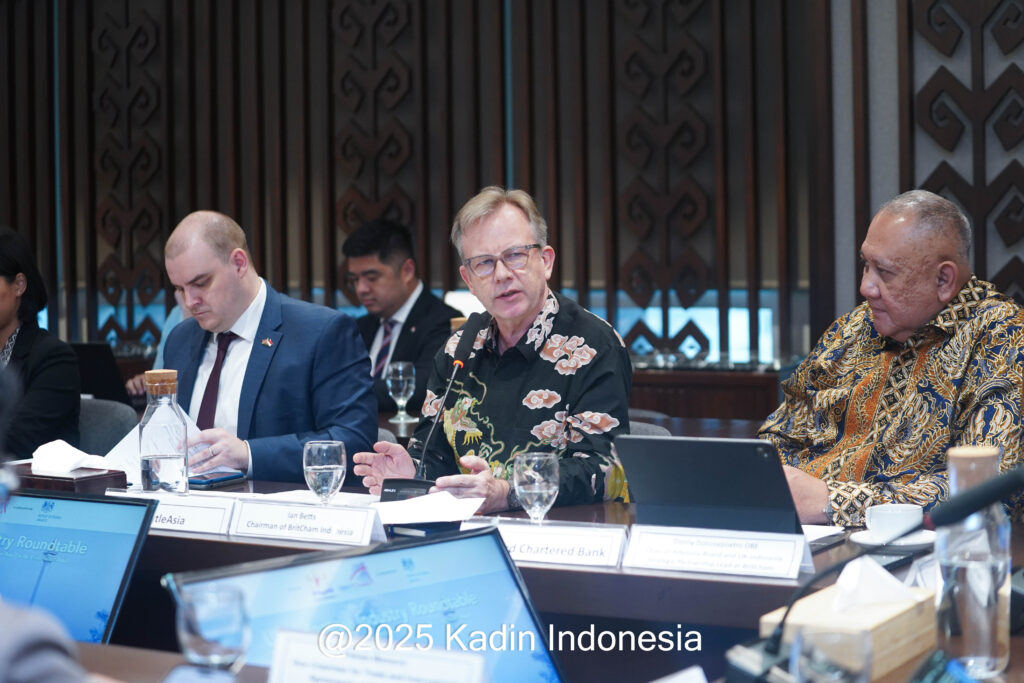
Ian Betts (CastleAsia) and Donny Donosepoetro OBE (Standard Chartered) encouraged closer bilateral collaboration in defence and cybersecurity. Suggestions included simplifying trade regulations for defence goods, establishing technology transfer frameworks, and enhancing bilateral dialogue mechanisms. On cybersecurity, speakers called for stronger international cooperation to bolster national resilience and reinforce investor confidence.
A Strategic Partnership in Numbers
- UK among Indonesia’s top 15 foreign investors and top 20 trading partners
- UK investments in 2023: USD 700 million, with strong potential in energy, education, healthcare, and climate action
- Total trade (Q1 2025): £3.7 billion, up 7.1% compared with Q1 2024
- Collaboration already extends to maritime security and defence innovation
Looking Ahead
The UK–Indonesia Strategic Partnership is expected to be signed later this year during President Prabowo Subianto’s visit to London. The landmark deal will formalise cooperation under four pillars:
- Economic Growth: strengthening trade and investment, OECD and CPTPP accession support
- Climate & Energy: joint work on decarbonisation, renewable energy, and critical minerals
- Defence & Security: maritime partnership, capacity building, and technology transfer
- People & Society: healthcare, education, digital services, and cultural exchanges
The Roundtable discussions provided valuable private sector input, ensuring that the Strategic Partnership will not only be a government-to-government agreement but also a platform for real business opportunities and stronger people-to-people ties.

